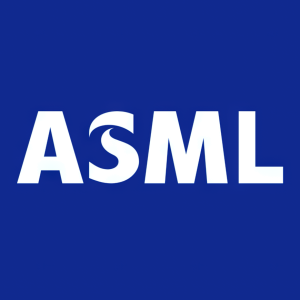ASML reports transactions under its current share buyback program
- None.
- None.
Insights
ASML Holding N.V.'s recent transactions under its share buyback program reflect a strategic move aimed at managing the company's capital structure and potentially boosting shareholder value. The repurchase of shares can be seen as a signal of management's confidence in the company's intrinsic value, often interpreted positively by the market. By analyzing the provided data, the average repurchase price has gradually increased over the course of the week, which may indicate a stable or increasing demand for ASML's shares.
However, it's important to consider the liquidity implications of such buybacks. While they can reduce the number of shares outstanding and potentially increase earnings per share (EPS), they also utilize cash reserves that could be allocated for other growth opportunities or to maintain financial flexibility. Investors should weigh the short-term EPS benefit against the long-term strategic use of cash.
From a market perspective, ASML's share buyback program is a mechanism that can influence the company's stock price and investor perception. The repurchase activity, occurring over consecutive days, demonstrates a sustained execution of the program, which could reassure investors about the company's commitment to its capital return strategy. It's also essential to note that share buybacks can improve financial ratios, such as return on equity, by reducing the equity base, making the company's financial performance appear stronger.
It's crucial to monitor the market's reaction to these buyback announcements. If the market views these transactions as a positive development, it could lead to a favorable impact on ASML's stock price. Conversely, if investors perceive that the buybacks are a method to artificially inflate the stock price without underlying business growth, the long-term impact could be negative.
From an economic standpoint, share buybacks can be a reflection of broader economic trends. In an environment where interest rates are low, companies may find it more advantageous to return capital to shareholders through buybacks rather than investing in low-yield projects. ASML's decision to buy back shares could be influenced by the current economic climate and the cost of capital. It's also indicative of the company's capital allocation priorities and its assessment of the best use of its cash reserves in the context of global economic conditions.
Moreover, the timing and scale of buybacks can have macroeconomic implications, affecting market liquidity and capital flows. As a major player in the semiconductor industry, ASML's financial decisions can also serve as a barometer for the sector's health and investor sentiment towards technology stocks.
ASML reports transactions under its current share buyback program
VELDHOVEN, the Netherlands – ASML Holding N.V. (ASML) reports the following transactions, conducted under ASML's current share buyback program.
| Date | Total repurchased shares | Weighted average price | Total repurchased value |
| 05-Feb-24 | 10,652 | | 8,761,179 |
| 06-Feb-24 | 10,529 | | 8,773,922 |
| 07-Feb-24 | 10,386 | | 8,747,419 |
| 08-Feb-24 | 10,307 | | 8,765,701 |
| 09-Feb-24 | 10,098 | | 8,733,321 |
ASML’s current share buyback program was announced on 10 November 2022, and details are available on our website at https://www.asml.com/en/news/share-buybacks
This regular update of the transactions conducted under the buyback program is to be made public under the Market Abuse Regulation (Nr. 596/2014).
| Media Relations Contacts | Investor Relations Contacts |
| Monique Mols, phone +31 6 528 444 18 | Skip Miller, phone +1 480 235 0934 |
| Marcel Kemp, phone +31 40 268 6494 | |
| Peter Cheang, phone +886 3 659 6771 |








